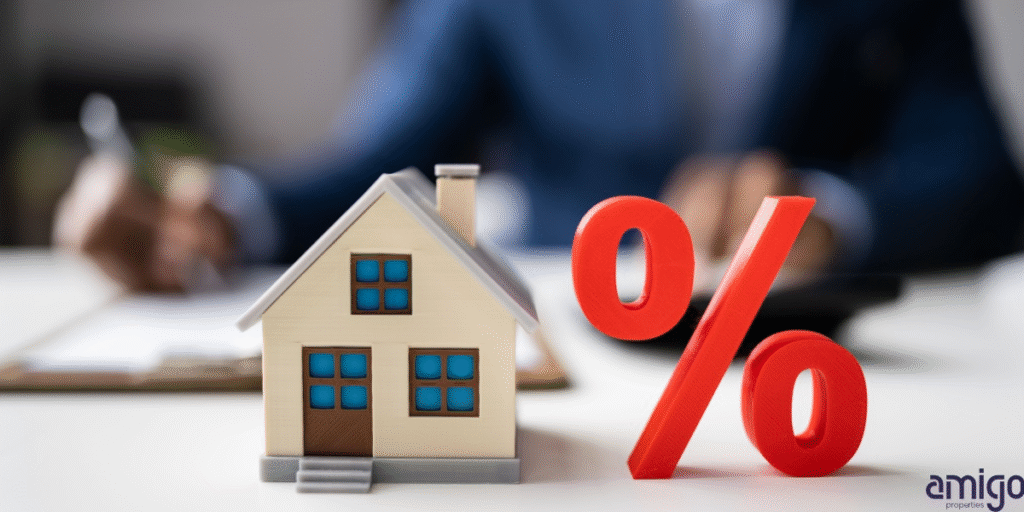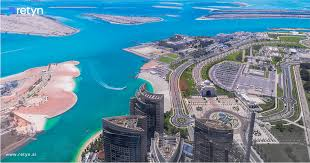Now Reading: UAE Home Financing Tips Every Buyer Must Know 2025
-
01
UAE Home Financing Tips Every Buyer Must Know 2025
UAE Home Financing Tips Every Buyer Must Know 2025

Table of Contents
Buying a new home is a dream for many people living in the UAE. Whether you’re a local resident or an expat, owning property gives you long-term security and peace of mind. But before choosing your dream villa or apartment, you need to understand how home financing works in the UAE. This guide will take you through all the important steps from mortgage types and eligibility to down payments, documents, and tips to make the process easier.
Why Home Financing is Popular in the UAE

The real estate market in the UAE continues to grow, especially in cities like Dubai, Abu Dhabi, and Sharjah. With rising property prices, most buyers rely on financing options to buy homes instead of paying the full amount in cash.
Banks and finance companies in the UAE offer a wide range of mortgage products for both residents and non-residents. These loans come with competitive interest rates, flexible payment plans, and financing options up to 25 years.
Types of Home Financing Options Available
- Conventional Mortgage Loans
This is the most common financing option. You borrow a set amount from a bank and pay it back in monthly installments, which include interest and the loan principal. - Islamic Home Financing
This option follows Islamic Sharia law. Instead of paying interest, you pay rent or profit on the bank’s share in the property. The bank either sells the home to you on a deferred payment basis (Murabaha) or enters a rent-to-own agreement (Ijara). - Fixed vs. Variable Interest Rates
- Fixed Rate: Your interest rate remains the same for a set period (usually 1–5 years).
- Variable Rate: The rate changes based on the market, which could either benefit or cost you more over time.
Who Can Apply for a Home Loan in the UAE?
Most UAE banks offer home loans to:
- UAE Nationals
- Expat Residents with valid residence visas
- Non-residents (limited options but growing availability)
To be eligible, you usually need:
- A stable income
- A good credit score
- Employment proof or business documents (if self-employed)
- A valid Emirates ID and passport copy
Down Payment and Loan-to-Value (LTV) Ratio
The UAE Central Bank has set clear rules for down payments:
- For First-Time Buyers (Expats): Minimum 20% down payment
- For UAE Nationals: Minimum 15% down payment
- For Properties Over AED 5 Million: 30% down payment
- For Second Properties: Higher down payment (up to 40%)
The Loan-to-Value (LTV) ratio shows how much of the property price the bank will finance. For example, with a 20% down payment, your LTV is 80%.
Maximum Loan Tenure and Age Limits
- Maximum Loan Tenure: 25 years
- Maximum Age: 65 years for expats, 70 years for UAE Nationals at the time of final installment
Make sure the monthly installment does not exceed 50% of your income.
Steps to Apply for a Home Loan in the UAE
- Pre-Approval
This is the first and most important step. Getting pre-approved by a bank tells you how much you can borrow, which helps in setting a realistic budget. - Property Search
With pre-approval in hand, search for properties within your budget. You can explore portals like Bayut, Property Finder, and Dubizzle. - Loan Application
Once you’ve selected a property, you submit a full loan application with documents including:- Passport and visa copy
- Emirates ID
- Salary certificate or business license
- Bank statements (last 6 months)
- Property details and sale agreement
- Property Valuation
The bank sends a professional to inspect and value the property to ensure it matches the sale price. - Final Approval and Offer Letter
If all looks good, the bank gives final approval and issues an offer letter stating all loan terms. - Down Payment and Transfer
You pay the down payment to the seller and register the property under your name at the Dubai Land Department or the relevant emirate’s authority. - Start Repayment
After the transfer, you begin repaying the loan in monthly installments as per the agreement.
Top Banks Offering Home Loans in the UAE
- Emirates NBD
Offers loans to both residents and non-residents with fixed and variable interest rates. - Abu Dhabi Commercial Bank (ADCB)
Provides attractive Islamic and conventional financing options. - Mashreq Bank
Known for quick approvals and flexible repayment plans. - RAKBANK
Offers home loans up to 85% of property value for select profiles. - Dubai Islamic Bank (DIB)
One of the best Islamic home finance options in the region.
Useful Tips to Make Home Financing Easier

- Always compare offers from at least 3–4 banks.
- Read all loan terms carefully, especially fees and early settlement charges.
- Maintain a good credit history—it helps in getting better rates.
- Don’t overextend your budget. Plan for service charges, maintenance, and insurance.
Conclusion
Buying a home in the UAE is now easier than ever with flexible and accessible financing options. Whether you’re a first-time buyer or planning to invest in a second property, understanding the financing process can save you time, money, and stress. With the right planning, advice, and banking partner, your dream home in the UAE can become a reality.
Read More:- Why Smaller Lawns Are Smarter: Save Water and Money Fast 2025






















